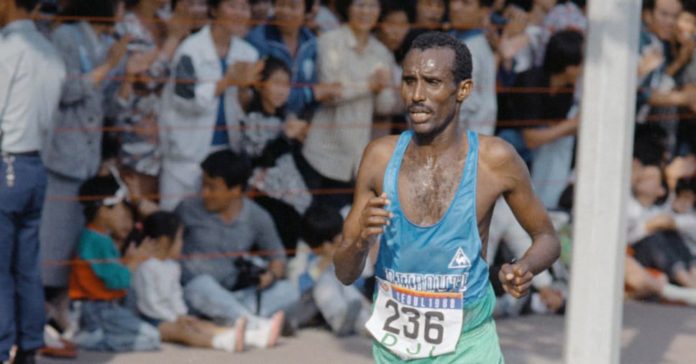The background
In the Horn of Africa lies a small country that achieved Olympic glory at the Seoul 1988 Olympic Games: Djibouti.
The nation has appeared in eight editions of the Olympics, the first being Los Angeles 1984 and the last Rio 2016. Since 1984, the only Olympics it hasn’t been involved in was Athens 2004.
Even though Djibouti have never sent more than a small amount of athletes to the Games, they have always stood out in athletics – particularly in the marathon.
In fact, only three Djiboutian athletes were sent to Los Angeles 1984 and all of them competed in the marathon. Djama Robleh – who placed eighth – achieved the best result. Alongside him, another athlete from Djibouti finished in 20th position: Hussein Ahmed Salah. Four years later, the same athlete would take his country to an Olympic podium for the first – and only – time.
History in the making
By the time Seoul 1988 came around, Hussein Ahmed Salah had the same amount of Olympic experience as his entire nation – one single appearance.
But prior to the Games, he had proved himself in marathons across the globe.
Between the Olympics of Los Angeles 1984 and Seoul 1988, Salah won the African Championships and the World Cup in 1985. Two years later, he added his name to the list of the world’s best marathon runners when he won a silver medal at the World Championships in Rome.
And so he began the Olympics in Seoul as one of the favourites, but what transpired during the competition was far from easy. Salah finished third in the closest marathon in Olympic history.
In the end, there were just 27 seconds between the gold and bronze medals. Italian Gelindo Bordin was first, clocking 2:10:32. He was followed by the Kenyan Douglas Wakiihuri (2:10:47) and Salah (2:10:59).
Even though Salah just missed out on the greatest Olympic achievement by winning gold, he still managed to achieve something truly special: after 42km of running, he won the first medal in the Olympic history of his nation.
Taniguchi. Salah also won the Reims Marathon (1996), Belgrade Marathon (1996), Vienna Marathon (1997) and Enschede Marathon (1998).
Having maintained his excellent form, Salah took part in two more Olympic Games: Barcelona 1992 and Atlanta 1996.
His career personal best time was 2:07:07, achieved when he finished second in the 1988 Rotterdam Marathon. The mark is still the Djiboutian national record.
Salah was born on the last day of the year 63 years ago, but he will always be remembered for being the first person in his nation’s history to achieve an Olympic medal. His final appearance at an international competition was in 1998 – exactly 10 years after the Games in which he made history.




